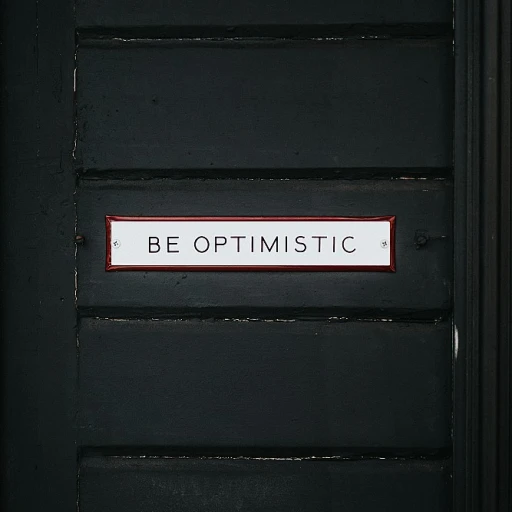The Heart of the Company: What Does a CHRO Do?
Championing Employee Well-Being and Development
At the very heart of any successful company lies its people, and the Chief Human Resources Officer (CHRO) plays a pivotal role in nurturing and championing the well-being and development of these invaluable human assets. While often the core objective of a CHRO is seen as managing the workforce, their influence extends far beyond mere administrative duties. The CHRO is a strategic partner to the CEO and other c-suite executives, ensuring that the company's people strategies align seamlessly with its overarching business goals. They design and implement initiatives that promote a positive workplace culture, foster employee engagement, and bolster retention rates. By nurturing the talents and potential of the workforce, CHROs help drive organizational success and innovation. In addition to safeguarding the welfare of employees, CHROs are key players in shaping an organization's identity and values. They lead in developing strategies that embrace diversity, equity, and inclusion, creating an environment where every employee feels valued and empowered to excel. Furthermore, the strategic role of a CHRO encompasses talent acquisition, leadership development, and succession planning, ensuring that the company is well-equipped with the right skills and leadership for sustainable growth. The synergy between a company's business objectives and its people strategy, fostered by the CHRO, is integral to achieving its mission and vision. For a deeper look into how CHROs are instrumental in driving business success, check out how CHROs drive business success by unleashing the potential of human capital. This exploration delves into actionable insights that showcase the indispensable value a CHRO brings to an organization.Skills That Make a CHRO Shine
Essential Skills for a CHRO to Thrive
In today's rapidly evolving business landscape, the role of a Chief Human Resources Officer (CHRO) is more critical than ever. To cultivate a thriving workforce and sustain a healthy organizational culture, a CHRO requires a diverse set of skills that go beyond traditional HR functions. Let's delve into the key competencies that define a successful CHRO. First and foremost, strategic thinking tops the list. A CHRO must possess the ability to align human resources strategies with the company's overall business objectives. This entails a comprehensive understanding of the organizational goals and the foresight to anticipate future workforce needs. The best strategies for building a future-ready workforce involve staying ahead of industry trends and continuously adapting HR practices to address emerging challenges. Learn more about future-ready workforce strategies. Next, mastering communication skills is indispensable for a CHRO. This goes far beyond merely conveying messages; it involves active listening, clear articulation, and the ability to foster an environment of open dialogue. Effective communication ensures that employees feel valued and understood, and helps in building trust across all levels of the organization. Moreover, emotional intelligence (EI) is a crucial attribute that enables a CHRO to empathize with employees while navigating complex interpersonal dynamics. A high EI allows a CHRO to handle sensitive situations with tact and foster a supportive workplace culture where employees can thrive. Additionally, embracing technology and data analytics has become a pivotal skill for any CHRO. With the increasing emphasis on data-driven decision-making, a CHRO must leverage HR analytics to provide insights into talent management, productivity, and employee engagement. This analytical prowess aids in optimizing HR processes and driving continuous improvement. Finally, a knack for change management is vital for steering the company through transitions efficiently. Whether it's digital transformation or a major organizational restructure, a capable CHRO leads change initiatives and ensures that employees are aligned, motivated, and prepared for new directions. With these skills at their disposal, CHROs are well-equipped to lead HR functions that are both proactive and transformative, truly embodying their role as the heart of the company.Crafting the Perfect CHRO Job Description
Essential Components for a Winning Job Description
Crafting the perfect job description for a Chief Human Resources Officer (CHRO) is crucial for attracting the right candidates. The job description serves not only as a blueprint for what is expected of the CHRO but also as a reflection of the company's culture and strategic goals. Here's how to create an effective CHRO job description that can help you find a candidate who will seamlessly integrate into your company's leadership. Firstly, it's important to clearly articulate the core responsibilities of the CHRO. These often include overseeing the development and implementation of HR strategies, leading talent management initiatives, and fostering a positive work environment. By outlining these areas, you provide potential candidates with a clear understanding of your needs. Highlighting the key skills and qualifications required is the next step. From exceptional leadership and communication skills to experience in change management and HR technology, knowing what skills make a CHRO shine is crucial. These competencies underscore the value they bring to the table, besides aligning with the company's strategic vision. For more insights into HR strategies, consider reading about employee engagement. Make sure to emphasize company culture and values in your job description. This helps candidates gauge if they are a cultural fit and prepares them for the kind of environment they will be operating in. Given that the CHRO often plays a significant role in shaping a company's culture, ensuring alignment on this front can lead to more successful appointments. Overall, the clarity and thoroughness of your CHRO job description can significantly influence your chances of finding a candidate who not only meets the qualifications but also propels your organization forward. In crafting this document, remember that it's not just about listing tasks and skills, but also inspiring potential candidates to see your company as their next strategic career move. For further understanding of leadership roles within your organization, explore the responsibilities and impact of a Chief Operating Officer.Interview Questions to Identify the Right CHRO
Key Interview Questions to Uncover the Perfect CHRO
Finding the right Chief Human Resources Officer (CHRO) can define the future trajectory of your organization. As we previously explored, the heart of the company essentially beats stronger with an adept CHRO. So, what kind of probing questions should you ask during an interview to ensure you are selecting the perfect fit? Understanding of HR StrategyOne fundamental area to delve into is the candidate's vision of human resources strategy. Consider asking: "Can you describe how you have developed and implemented a comprehensive HR strategy that aligns with the broader goals of the company?" Here, you're looking for a detailed explanation that ties back to our discussion on key skills that make a CHRO shine, such as strategic thinking and alignment with company objectives. Leadership and Change Management
Given the dynamic nature of modern business environments, it's vital that your CHRO demonstrates strong leadership and change management capabilities. Pose the question: "Describe a situation where you successfully led a significant change within the HR function. What challenges did you face, and how did you overcome them?" This question aims to highlight their ability to lead a resilient team and adapt to continuous changes in the business landscape. Talent Development and Retention
A CHRO's role in talent management is another critical area to investigate. Ask the candidate: "How have you approached the development and retention of top talent in previous roles? What innovative strategies have you employed?" By focusing on this, you are assessing their capability to nurture a thriving workforce, a key aspect we touched upon when exploring the benefits of having a CHRO in your company. Diversity and Inclusion
Finally, delve into their approach towards building a diverse and inclusive workplace culture. Propose a question like: "Can you share your experience in promoting diversity and inclusion within your team or organization? What tangible results have you achieved?" Responses to this inquiry can reveal how committed they are to fostering an inclusive environment, which aligns with the overarching goal of modern business operations. As we unravel these aspects, remember that the goal is to unearth a CHRO whose vision and experience align closely with the strategic needs of your organization. With the insights drawn from these conversations, you are better positioned to identify a leader poised to drive impactful human resource initiatives.





-large-teaser.webp)








